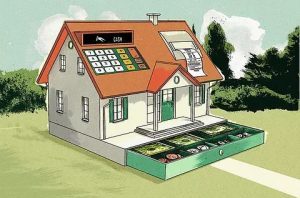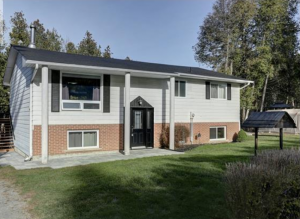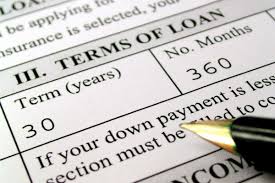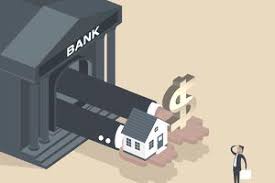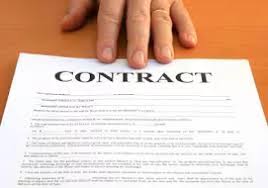
Fixed Interest Rates
This is usually the more popular choice for clients when it comes to deciding on which type of interest rate they want.
There are many reasons why, but the most unsurprising answer is always safety. With a fixed interest rate, you know exactly what you are paying every month and you know that the amount of interest being charged for the term of your mortgage will not increase and it will not decrease.
Fixed interest rates can be taken on 1-year, 2-year, 3-year, 5-year, as well as 7 and 10-year terms. Please note, term is not meant to be confused with amortization. When you have a 5-year term but a 25-year amortization- the term is when your mortgage is up for renewal, but it will still take you the 25 years to pay off the entire debt.
The biggest knock on fixed interest rates when it comes to mortgages, especially 5-year terms, is the potential penalty. If you want to break your mortgage and pay it out, switch lenders, take advantage of a lower rate, or anything like this and your term is not over, there will be a penalty. With a 5-year term a fixed rate penalty can be anywhere from $1,000- $20,000 or more.
It all depends on the lender’s current rates, what yours currently is, the length of time remaining on your term, and the balance outstanding. The formula used is called an IRD (interest rate differential) and the penalty owed will either be the amount this formula produces or three month’s interest- which ever is greater.
Fixed interest rates, especially 5-year terms can be the most favourable. They are safe, competitive interest rates that you will not need to worry about changing for the term of your mortgage. However, if you do not have your mortgage for the entire term, it could hurt you.
Variable Rate Interest
The Bank of Canada sets what they call a target overnight rate and that interest rate influences the prime rate a lender offers consumers. A variable rate, is either the lender’s prime lending rate plus or minus another number.
For example, let us say someone has a variable interest rate of prime minus 0.70. If their lender’s prime lending rate is 5.00% in this example, they have an effective interest rate of 4.30%. However, if for example the prime rate changed to 6.00%, the same person’s interest rate would now be 5.30%. Written on a mortgage, these interest rates would look like P-0.7.
Variable interest rates are usually only available on 5-year terms with some lenders offering the possibility of taking a 3-year variable interest rate.
When it comes to penalties, variable interest rates are almost always calculated using 3-months interest, NOT the IRD formula used to calculate the penalty on a fixed term mortgage. This ends up being significantly less expensive as breaking a 5-year term mortgage at a fixed rate of 3.49% with a balance of $500,000 will cost approximately $15,000. That is if you use the current progression of interest rates and broke it at the beginning of year 3. A variable interest rate of Prime Minus 0.5% with prime rate at 3.45% will only cost $3,800. That is a difference of $11,200.
You can expect to pay this kind of amount for the safety of a fixed rate mortgage over 5-years if you break it early.
Which one is best?
It completely depends on the person. Your loan’s term (length of time before it either expires or is up for renewal) can be anywhere from a year to 5 years, or longer. A first-time home buyer typically has a mortgage term of 5 years. Within those 5 years, the prime rate could move up or down, but you won’t know by how much or when until it happens.
Recently, variable rates have been lower than fixed rates, however, they run the risk of changing. With fixed interest rates, you know exactly what your payments will be and what it will cost you every month regardless of a lender’s prime rate changing.
If you go to the site www.tradingeconomics.com/canada/bank-lending-rate you can see the 10-year history of lender’s prime lending rate. Because lenders usually change their prime lending rate together to match one another (except for TD), this graph is a good representation.
As you can see, from 2008 to 2018, the interest rate has dropped from 5.75% to 2.25% all the way back up to 3.45%.
Canada has had this prime lending rate since 1960, and in that time it has seen an all-time high of 22.75% (1981) and all-time low of 2.25% (2010) (tradingeconomics.com). Whether you want the risk of variable or the stability of a fixed rate is up to you, but allow this information to be the basis of your decision based on your own personal needs. If you have any questions, don’t hesitate to contact a Dominion Lending Centres mortgage broker.
Contact me for your best mortgage options 705.669.7798 or trina@ndlc.ca
#trinamortgages #mortgages #ndlc #freedomofchoice
#bestmortgageforme #executive #firstimehomebuyer
If you found this information valuable, I only ask that you share with your friends and family.
Copyright DLC



